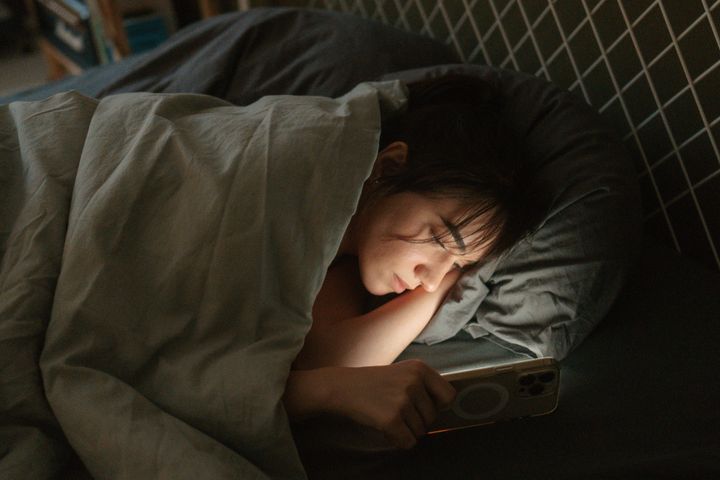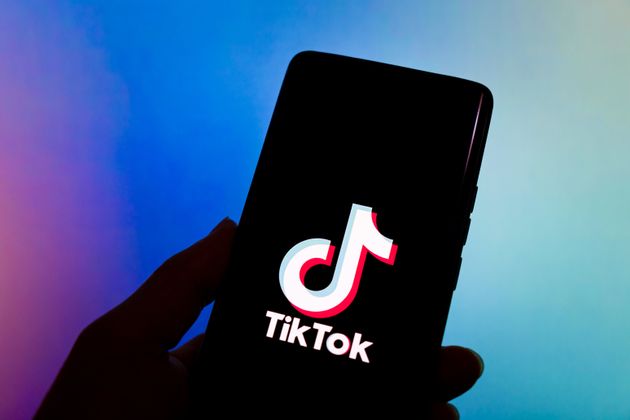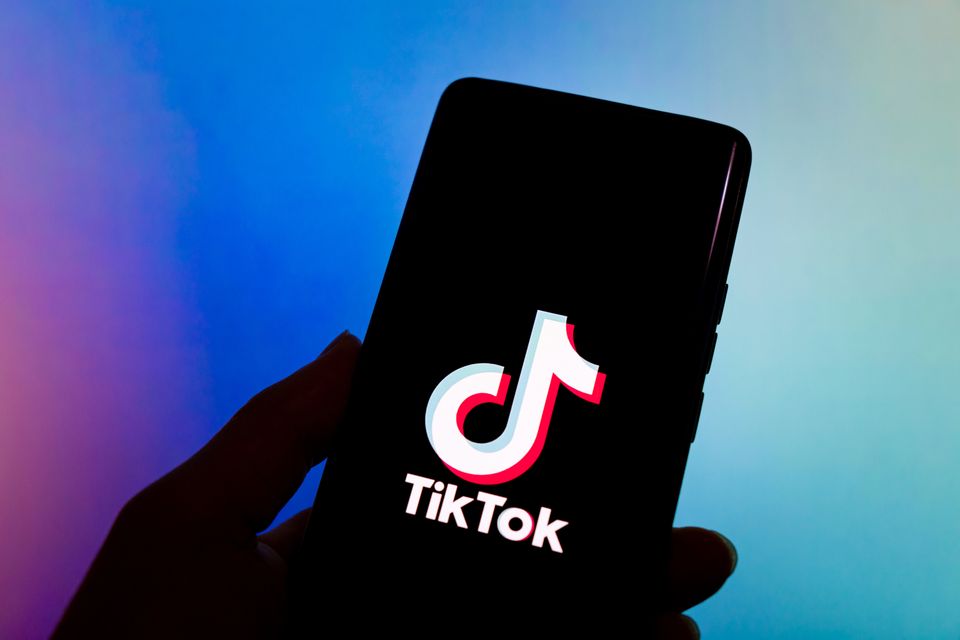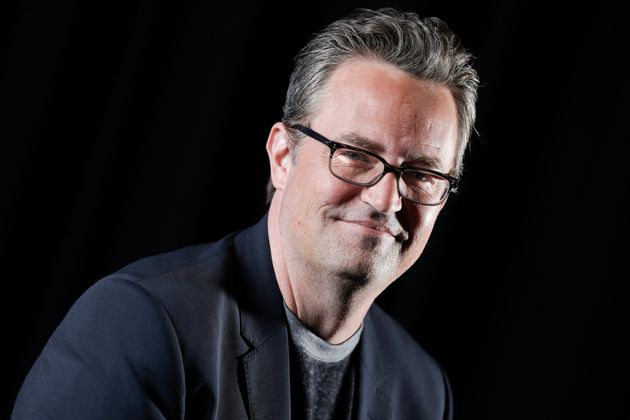I’ll say it: The power TikTok has on my nighttime routine is unmatched. After I’ve popped a melatonin, brushed my teeth and settled under the covers, I’m heading to the app for funny videos and relatable content.
Whether or not TikTok is here to stay is up in the air, although it’s increasingly looking like a ban might take effect in the coming days. But until then, I think it’s safe to say I’m one of many users who enjoys the platform. From recipes and beauty trends to mood-boosting hacks and products that are actually useful, dare I say that TikTok is low-key a lifestyle hub?
Advertisement
As with anything, though, too much of a good thing is… well, not a good thing. At what point can endless scrolling be unhelpful, or even harmful? At what point can TikTok use point toward addiction, affect work and relationships, and even cause a sour mood?
Ahead, therapists and counsellors who specialise in addiction share a major sign you’re addicted to TikTok, why TikTok is so addicting and what to do if your usage causes problems.
The Main Sign You’re Addicted To TikTok
Addiction experts agree that one sign stands out: Your use of the app takes over your life.
“The biggest red flag is when TikTok starts to interfere with daily responsibilities or relationships,” said Michael Villarreal, the CEO of Tres Vistas Recovery, an addiction treatment centre in California. “If someone finds themselves skipping work tasks, ignoring family or friends, or struggling to keep up with school or chores because they’re too wrapped up in endless scrolling, that’s a strong sign that their usage has become very unhealthy.”
Advertisement
That comes down to one thing. “As with any addiction, the main indicator of a problem is lack of control,” said Beth Chippendale Katona, a licensed clinical professional counsellor and a licensed clinical addiction counsellor with Thriveworks in Kansas City, Missouri. “The individual experiences consequences and is not able to curb the behaviour.”
It’s important to note that people experiencing addiction may feel like they’re in control, but that’s not necessarily the case.
If all of that sounds a little too familiar, you’re far from the only one. Villarreal shared an example from his practice. “I once worked with a client who realised her sleep patterns were entirely off because she’d get caught up in the ‘just one more video’ loop until 3 a.m.,” he recalled.
Advertisement
Other Signs You’re Addicted To TikTok
Addiction and unhealthy usage can present themselves in other noteworthy ways, too. Providers urge people to look out for the following signs.
You’re constantly thinking about the app.
Whether you’re taking a break at work, going to the bathroom or fighting the need to get out of bed, an urge to watch TikTok may arise — and that’s not necessarily a great thing.
“If TikTok is the first thing you think about in the morning and the last thing before bed, or if you’re constantly replaying videos in your head during other activities, that’s a sign your brain is hyper-focused on it,” Villarreal said.
Advertisement
You feel emotionally dependent on it.
Feeling anxious, bored or irritable without TikTok, or relying on it for validation, are other signs of dependency, according to Villarreal.
Claire Wilson, a therapist with Kelley Counselling & Wellness, also pointed this out. “There can be abrupt shifts in mood when access to TikTok is restricted,” she said. “One may notice a tendency to frequently incorporate TikTok into discussions with others, leading to comparisons with individuals featured on the platform, which can adversely impact one’s mood and mental well-being.”
You experience physical pain.
Yep, spending too much time on TikTok can even cause physical problems, unfortunately.
“Spending hours glued to your phone can lead to physical issues like eye strain, headaches or neck pain — what some jokingly call ’tech neck,’” Villarreal said.
Advertisement

AleksandarNakic via Getty Images
When Is TikTok Use Unhealthy Versus A Full-Blown Addiction?
Loving TikTok isn’t necessarily an addiction, so at what point is it?
According to Wilson, it’s when “dependency may distort one’s understanding of reality, resulting in a loss of personal identity, alterations in personality, decreased self-esteem and even suicidal thoughts.”
Katona summarised her take with three key words: level of impact. When your work, school, relationships and goals suffer greatly because of TikTok, she said, you may be looking at an addiction.
Advertisement
“In essence, an unhealthy relationship is problematic but can usually be addressed with intentional changes, while addiction is more compulsive and often requires outside help or intervention,” she explained.
Why Scrolling On TikTok Is So Addicting
So why is it so dang easy to get lost in the sauce of TikTok? How are silly videos so engaging that they can cause real damage?
“TikTok is brilliantly designed to keep you hooked,” Villarreal said. “It’s like a slot machine: You don’t know what’s coming next, but you’re sure it’ll be entertaining, so you keep scrolling.”
Advertisement
Besides the way it provides endless entertainment and excitement, TikTok’s formulation is also strategic. Katona spoke to the algorithm tailoring content for you, the stress relief it provides and how it can help you feel connected to others in a more comfortable, easy way.
Wilson added that the dopamine high is “similar to a high one can get from a drug” and can even “lead to withdrawal symptoms and the onset of addiction, escalating to more serious forms of dependency.”
What To Do If You Want To Scroll Less On Social Media
“Comprehending the functionality of TikTok and its impact on users is essential,” Wilson said. “Acknowledging a potential addiction to TikTok is a crucial first step.”
Advertisement
The same holds true for other social media apps. Consider the following expert-backed tips:
Set limits.
Since the “just one more video” mindset can be a slippery slope (been there, done that), try to set specific, firm boundaries around how much time you want to spend on the app. For example, maybe an hour spread out over the day, or only when you’re in line at the store.
Certain tools can make this easier. Villarreal mentioned TikTok’s built-in screen time settings, which Apple phones typically have, too.
Create no-phone zones.
Villarreal suggested dedicating certain spaces — like your bedroom or the dinner table — as tech-free areas. “This helps you reconnect with life outside the screen,” he said.
Advertisement
Find new habits or hobbies.
What else do you like to do in your downtime? That may be an easier, more enjoyable way to replace screen time.
Examples of activities Villarreal mentioned include reading, walking and other hobbies. Maybe it’s time to finally meet that reading goal or even bring back the hot girl walk.
Get curious.
Feel a compulsion to get on the app? Ask yourself why.
“Are you bored, stressed or avoiding something?” Villarreal asked. “Address the root feeling instead of escaping into the app.”
Advertisement
For example, maybe you’re trying to avoid an uncomfortable feeling that’s better addressed, at least long-term, in therapy. Or maybe you’re bored and realise pursuing another weeknight activity would fulfil you more.
Seek support.
You’re not alone in this journey. Besides having settings and goals to help keep you accountable, you can also talk to someone.
“If you’re struggling to cut back, talk to someone, maybe a trusted friend, therapist or support group,” Villarreal said. “There’s no shame in reaching out for help.”
Advertisement
Looking for a therapist who specialises in addiction or practices cognitive behavioral therapy may be especially fruitful. CBT is a type of therapy that looks at a person’s thoughts and how they affect mood and behaviour.
“This method aids in restructuring cognitive patterns and unlearning detrimental habits, while also equipping individuals with coping strategies and alternatives,” Wilson explained.
Group therapy may also be advantageous, she added. For example, users may benefit from a Media Addicts Anonymous group, which is similar to the more commonly known Alcoholics Anonymous.
Advertisement
TL;DR? “It’s normal to enjoy social media, but the distinction lies in impact,” Villarreal said. “Unhealthy use becomes a full-blown addiction when it starts significantly disrupting someone’s mental, emotional or physical health.”
At that point or earlier, these suggestions may be needed for truly happier living.







